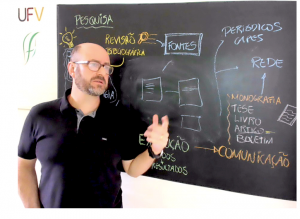About the author
 I was born in 1973 in the city of Pelotas, in the southernmost part of Brazil. My interest in agriculture began early, influenced by the lifestyle of some relatives and their friends working as scientists in agricultural sciences. My high school years, spent in a rural school, were instrumental in strengthening this connection. Graduating with a major in agronomy in 1996 was just the beginning. I deepened my interest in plant pathology during graduate studies at the Federal University of Pelotas, one of Brazil’s leading agricultural schools. My engagement with plant diseases solidified during my doctoral work, where I took on the challenge of understanding and modeling Fusarium head blight, a disease of major significance to wheat production.
I was born in 1973 in the city of Pelotas, in the southernmost part of Brazil. My interest in agriculture began early, influenced by the lifestyle of some relatives and their friends working as scientists in agricultural sciences. My high school years, spent in a rural school, were instrumental in strengthening this connection. Graduating with a major in agronomy in 1996 was just the beginning. I deepened my interest in plant pathology during graduate studies at the Federal University of Pelotas, one of Brazil’s leading agricultural schools. My engagement with plant diseases solidified during my doctoral work, where I took on the challenge of understanding and modeling Fusarium head blight, a disease of major significance to wheat production.
The next steps in my career took me abroad. I spent one year at Cornell University during my doctoral training and later completed a postdoctoral position at Iowa State University, experiences that broadened both my research scope and professional network. In 2006, I returned to Brazil to take a position as assistant professor at the Federal University of Rio Grande do Sul, where I dedicated eight years to teaching, research, and student mentoring in plant disease epidemiology. In 2014, seeking new challenges, I joined the Universidade Federal de Viçosa (UFV) as associate professor. I currently serve as full professor, where I continue to mentor, teach, and guide master’s and doctoral students in the field.
Throughout my career, I have been a strong advocate for open science. In my lab, transparency is a core principle. We use the R language for statistical analysis and data processing, and we share our scripts and results as preprints and open-access outputs.
This commitment to openness led me to adopt open education practices, including the self-publication of the book R for Plant Disease Epidemiology, written entirely with open-source tools. The open format ensures that the book remains accessible, updatable, and aligned with the evolving nature of plant epidemiology and the R environment.
I dedicate this book to my wife, Isabel, and our son, Vitor, who have been constant sources of support. Their patience and encouragement were essential, especially during long stretches of writing and revision.